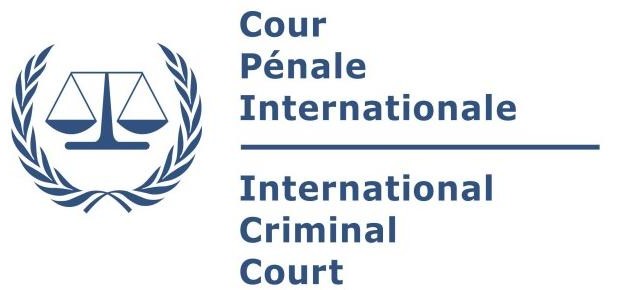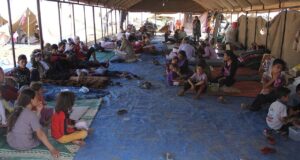By Michelle McKenna, Junior Fellow
20th September 2013, Global Governance, Issue 3, No. 5.
On the 6th of September, the Kenyan Parliament passed a motion to withdraw from the ICC. Kenya is the first country ever to make moves to withdraw from the court and this could have wide reaching implications, not least for Kenya.
Following the declaration that incumbent President Mwai Kibaki was the winner of the presidential election on 27th December 2007 widespread violence erupted in Kenya in protest against the result. This led to over 1,300 people being killed and over 600,000 persons being displaced. In response to this crisis, the International Criminal Court indicted several individuals on the grounds of, among other things, crimes against humanity, ethnic cleansing and murder
Among those indicted were Uhuru Kenyatta and William Ruto, who now hold office as Kenya’s President and Deputy President, respectively, following the country’s March 2013 election. The election of Kenyatta and Ruto marked a change in political direction for the country and it quickly became clear that the government would not support a court that is trying to prosecute its president. Indeed, witnesses are now no longer willing to testify against President Kenyatta and a joint case against Francis Muthaura has already had to be dropped due to a lack of evidence.
On the 6th of September 2013, the National Assembly of Kenya in an emergency debate passed a motion to withdraw from jurisdiction of the International Criminal Court. It is the first and only country to decide to withdraw from the ICC. So what does this mean for Kenya? It will take Kenya at least a year to withdraw from the ICC as they are required to notify the UN Secretary General Ban Ki-moon of their intentions under Article 127(1) of the Rome Statute. In the meantime, this decision to withdraw from jurisdiction of the court does not affect the position of the current trials before the court and Kenya is still required to cooperate with the court in the cases of Kenyatta and Ruto. It could then be said that this decision by Kenya is indeed largely symbolic; however, what is obvious is that this is a blatant attempt by the Kenyan Government to undermine the legitimacy of the court.
Furthermore, this is a clear setback to reforms to tackle political impunity in the country, which will be a blow to the ICC as tackling impunity is one of the main aims of the court. This could have a serious impact on the people of Kenya. Tiseke Kasambala from Human Rights Watch has stated, “This proposed withdrawal from ICC sends the message to Kenyans that what happens to them does not matter. But those who violently torture, and kill them or displace them from their homes would not be brought to account and the Kenyan government doesn’t actually care about them.” If this withdrawal goes ahead then it could strip the Kenyan people of the human rights protections afforded to them by the court and allow crimes to be committed with impunity in the future. This essentially puts Kenya back in the position it was before they signed the Rome Statute and if there was to be a repeat of the violence witnessed in 2008 then it is possible that no one could be held accountable for it.
The withdrawal of Kenya from the court also has wider implications for the ICC itself going forward. The court has somewhat struggled in the past with gaining legitimacy for itself and has come under particular attack from the African Union for the fact the main focus of their work is on the continent and that to date it has only indicted people from Africa. It has been said that the Prosecutor of the ICC only selects ‘easy targets’ and unfortunately many African countries fall into that category. This claim undoubtedly is true, however, no matter how much the court may dislike it. Countries where the rule of law is strong do not need the ICC: the court is supposed to be one of last resort and the complementarity principle prevents the Prosecutor from getting involved in a situation where the country itself is already taking action. However, many African states have actively went to the ICC and asked them for their assistance. When Kenya referred the situation to the ICC in 2010, they did so because the country believed that the justice served before the ICC was better than what they could achieve at home. And thus far, the court has been working in the best interests of the Kenyan people in much the same way as it did for the citizens of the DRC in the Lubanga case. Choosing now to withdraw support for the ICC would remove that possibility for the Kenyan people going forward and with the Kenyatta case having the potential to go on for several years, it puts the court in an impossible position of trying to prosecute a sitting head of state without the support of his country.
This does not help with the ICC’s claim for legitimacy as an international court. With many big countries such as the USA and China already rejecting the ICC, it is hard to see how the court could go forward when the smaller countries that it is supposed to be working to protect start to reject its jurisdiction as well. When the Kenyan parliament formally starts the ball rolling to withdraw from the ICC, they will do this because they believe that it is in the best interests of their country and the fate of the court is ultimately irrelevant to that. In this case, however, it is difficult to make the argument that this could be the best decision for Kenya when it could remove the right to justice for thousands of people. Worse than that, it could even plunge Kenya back into a dictatorship and dispel the sense of democracy that they have worked hard over the past few years to achieve.
Michelle is contactable at: michelle.mckenna@hscentre.org
Please cite this article as:
McKenna, M. (2013) ‘Kenya Votes to Withdraw from ICC: A Victory for Impunity?’ Human Security Centre, Global Governance, Issue 3, No. 5.
 Human Security Centre Human Rights and International Security Research
Human Security Centre Human Rights and International Security Research




